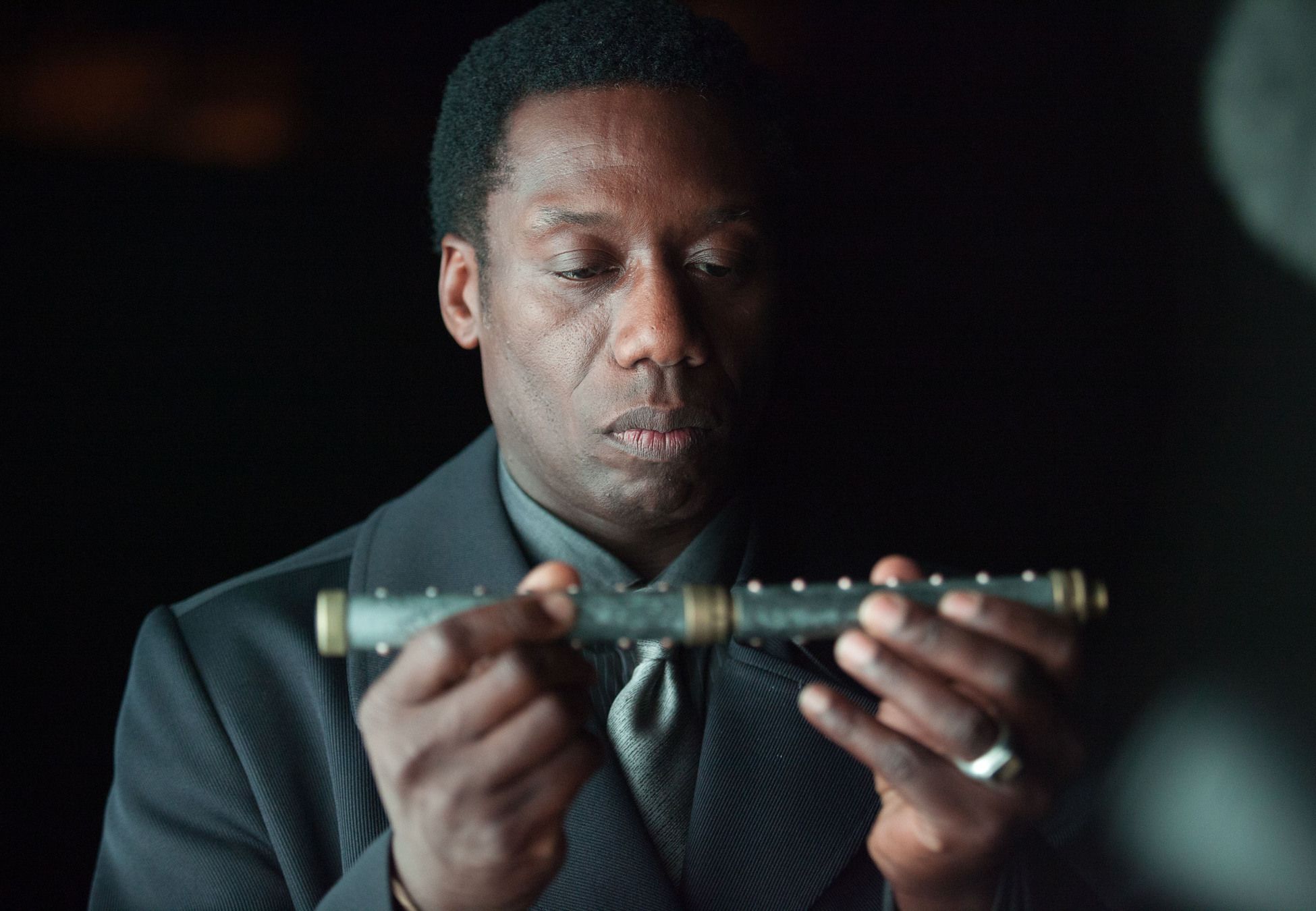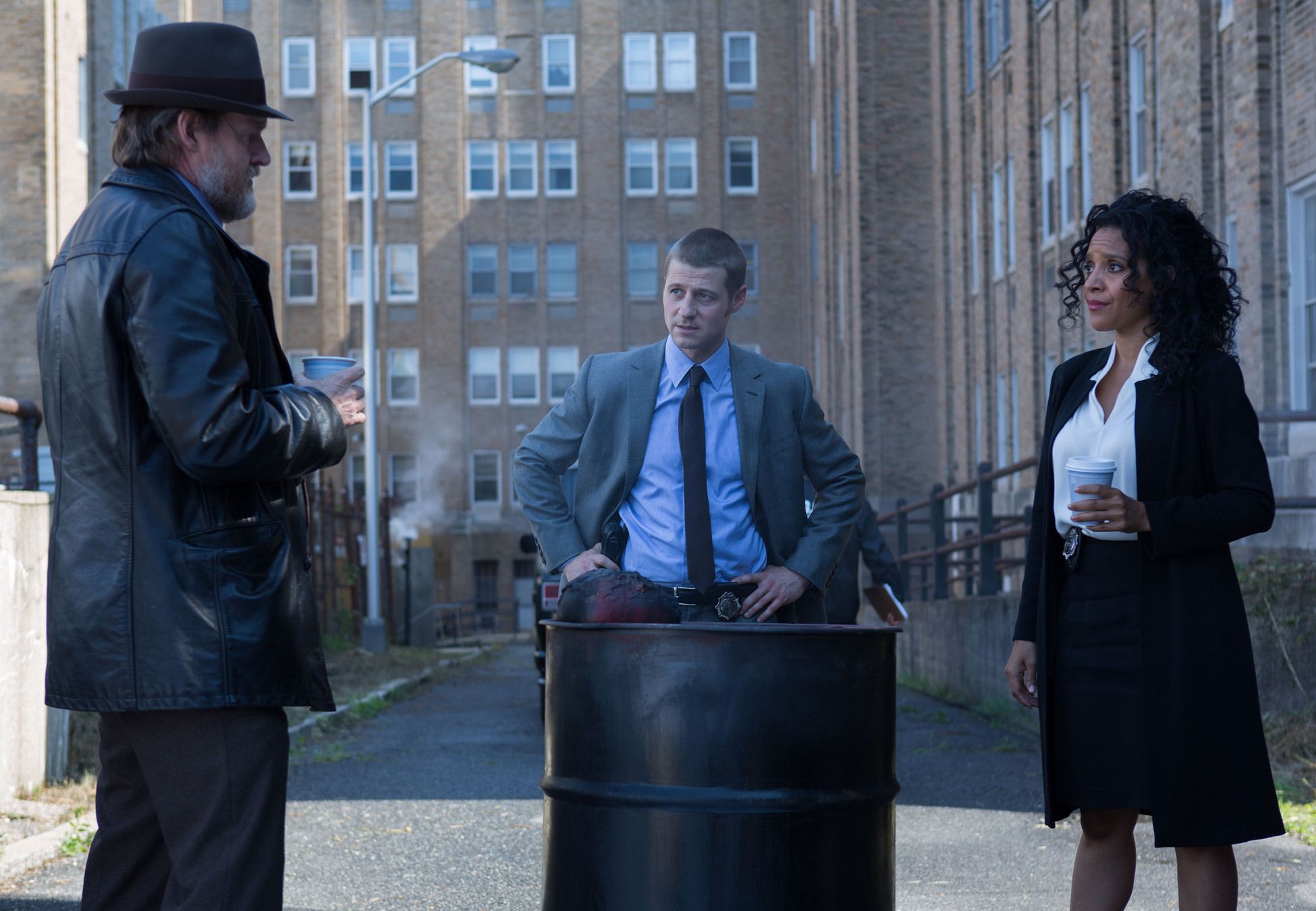In the world of Batman, the name Arkham looms large over a gallery of grotesque madmen and killers. In this week's episode of Fox's Gotham, the name looms as well, but what it stands for lacks derangement or definition.
Last night's installment takes its name from the decrepit asylum that will one day house the likes of the Joker and Poison Ivy, with its plot revolving around a brewing mob war over the Arkham neighborhood that surrounds the institution. Both the current mafia boss of bosses Carmine Falcone and his upstart rival Sal Maroni hope to develop the district in their own images. But while the idea of a war over the soul of Arkham-to-be is a compelling premise for a story, neither side of the conflict makes a compelling case for what the future madhouse means to the show.
Running through the haunted halls of the Arkham manse is Gladwell – this week's proto Batman villain. While the name doesn't strike any particular chords in the comics canon, Gladwell represents the kind of villain that will one day take up residence in the madhouse. The hitman has a flair for the theatrical in the way he kills his targets (usually with a self-made trick blade) and a penchant for identity theft.
Swirling around the story of Gladwell's mob-driven murder of politicians tied to Arkham are Gotham's regulars – eternally caught in between the city's corrupt forces. Jim Gordon sees the war over Arkham as another example of Gotham's failed promise. What should be an homage to the Wayne family's goal of healing the sick city is just another excuse for the rich to carve up the poor. And Jim's new "friend" Oswald Cobblepot sees the battle as an inevitable step in the coming war that will allow him his chance to ascend Gotham's criminal hierarchy. When Jim and Oswald clash over the latter's return, despite the threat his continued existence presents to both if Falcone finds out, a few sparks fly but never catch fire.
On the other side of the city, would-be crime lord Fish Mooney is stuck with her own predicament: She's auditioning for a new chanteuse, but it's not strictly for the stage of her nightclub. What she's looking for is a siren who can lure in Falcone. What she has is one talented vocalist with no sex appeal and one vampy vixen who hits sour notes.
From all that setup, the rest of the hour clicks along like pleasant-looking clockwork. Gordon and his partner Harvey Bullock run through another routine "investigation" that's merely a string of forgettable informants coughing up exposition with no thematic content. Cobblepot steps up to the next rung of the Maroni ladder by staging a hit he can pin on Falcone, before poisoning his accomplices with glee. And Fish eventually chooses her songstress the only way that she can – with a bloody fight.
Each of these plot points holds its moments of charm: Gordon's thread makes strong use of the spooky cityscape that houses Arkham; Oswald's presents maybe the first truly visceral mob action the show has shot to date; and Fish is, as ever, a master of scenery chewing.
But the revelations that emerge as the episode unfolds feel flat and predictable. Not even the admission from Gordon's fiancee Barbara that she once dated his inter-office rival Montoya can wring any new excitement out of the story. Barbara continues to distrust Jim when he won't open up, and Jim continues to be angry but ineffectual about his complicity in the Falcone machine. Ho-hum.
The problem this show continues to have one month in is that it never attempts to find a sum to its parts. Even when it can pull a striking moment, memorable visual or interesting twist out of its hat, Gotham still has very little holding it together.
With the promise that Arkham Asylum holds for the Batman world, the episode that introduces its origins should dig into that crazy legacy full on. Gladwell should shake the confidence of the cops with the sheer level of his depravity. The mob bosses fighting for the asylum should give themselves over to its creeping madness. Hell, anything should happen that reminds us that Gotham is a city full of two-faced, crazy killers.
Instead, the killer is taken out thanks to the still-uneasy Gordon/Bullock partnership. The mayor embraces a compromise plan for the Arkham district that abandons the Waynes' noble ambitions, but little else in the story changes. And Fish and Oswald continue to spin their wheels as they wait for a real development in their stories.
Gotham crawls along another week without a voice, and it's a little maddening.




